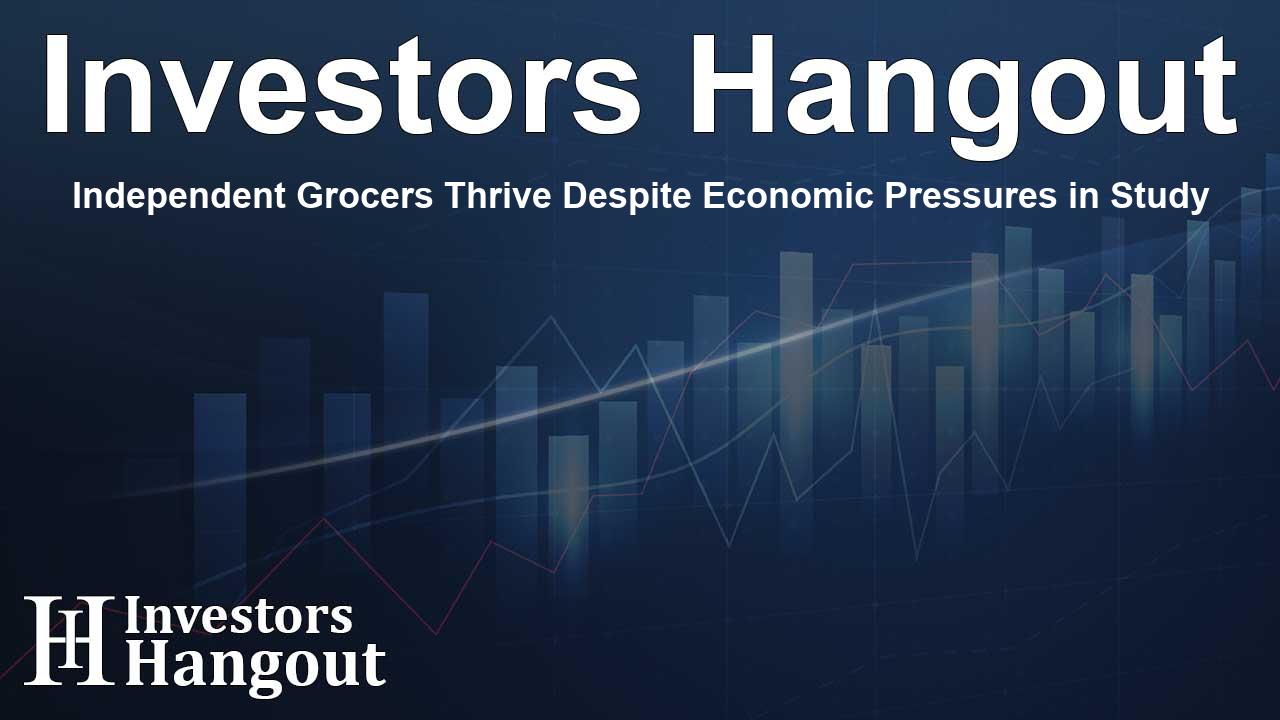Independent Grocers Thrive Despite Economic Pressures in Study

Independent Grocers Show Resilience in Tough Times
The 2025 Independent Grocers Financial Study offers deep insights into how independent grocers have adapted to financial and operational pressures over the past year. As reported by the National Grocers Association and FMS Solutions, this study reflects a year of change where these grocery stores showcased remarkable agility amidst economic uncertainty.
Shifting Consumer Behavior and Grocery Trends
Consumer sentiment saw a decline in early 2025 due to various concerns including market volatility and rising costs. This shift resulted in shoppers prioritizing value-driven purchases, which significantly influenced grocery shopping patterns. Data reveals that while grocery spending per trip went down, weekly transactions soared to an average of 8,609 per store, indicating a quest for promotions and discounts. A notable 95% of independent grocers adapted their marketing strategies by utilizing advertising circulars, transitioning increasingly to digital formats.
The Adaptive Nature of Independent Grocers
Greg Ferrara, the NGA President and CEO, underscored the vital role independent grocers play in their communities, stating, "These retailers are finding creative ways to deliver value and maintain community connections despite rising costs and changing consumer dynamics." The ability of independent grocers to enhance their service offerings has cemented their importance within local economies, helping to build customer loyalty.
Financial Performance Metrics
Despite headwinds, the financial metric of net profit showed a slight increase to 1.9%, primarily attributed to larger operators. However, results varied significantly across the board, with single-store grocers experiencing a decline in EBITDA while multi-store operators saw improvements. The hard figures reveal sales growth of 1.3% year-over-year, fueled significantly by a 2.2% hike among multi-store operators.
Operational Challenges and Innovations
Operational hurdles persisted, particularly workforce turnover, which reached a staggering 40.7% overall and 55.8% among multi-store entities. Although the adoption of self-checkout systems was reported to be on the rise, only 47% of operators had implemented this option. Meanwhile, while inventory management saw a positive turn with an average of 17.8 inventory turns, shrinkage also climbed to 3.5%
Cost Management and Profitability
Margins remained stable at 27.4%, yet the burden of total expenses surged to 25.8% of sales due to higher labor and operational costs. Strikingly, labor and benefits alone accounted for 16.3% of net sales, indicating the high stakes involved in workforce management as grocers strive to remain profitable while investing in their employees.
Insights from the Financial Study
The findings presented in the 2025 Independent Grocers Financial Study, supported by data from 93 survey participants across 626 store locations, serve as a critical tool for grocers navigating the evolving landscape. It presents segmented insights that can help independent grocers make informed strategic decisions based on their unique circumstances.
As trends such as e-commerce gain traction—though still representing just 1% of total sales—there's potential for larger average baskets online, spotlighting the value of enhancing digital offerings as part of a comprehensive grocery strategy. The average online basket is reported at $105 compared to $34 in-store, indicating the diverse opportunities for grocers willing to evolve.
Creating Unique Consumer Experiences
Innovative approaches, particularly in the bakery segment, are becoming major differentiators for independent grocers. By leveraging seasonal items, in-store baking, and unique offerings, these retailers can enhance customer engagement and drive sales, demonstrating adaptability in product selection.
Conclusion and Future Outlook
As independent grocers continue to play an essential role in local communities, the insights from the 2025 study reveal how they navigate challenges with resilience and adaptability. The strategies they employ, from enhanced marketing to innovative product offerings, will be crucial in responding to economic pressures and consumer demands.
Frequently Asked Questions
What does the 2025 Independent Grocers Financial Study indicate?
The study highlights the financial and operational performance of independent grocers amidst economic challenges, showing their resilience and adaptability.
How did consumer behavior change in 2025?
Consumer sentiment declined, prioritizing value and promotions, leading to an increase in weekly transactions despite a decrease in spending per trip.
What operational challenges do independent grocers face?
They face significant workforce turnover rates and rising operational costs, which heavily impact their profit margins.
What innovations are independent grocers implementing?
Many are shifting to digital advertising and enhancing product offerings, particularly in baked goods, to attract customers.
What is the impact of e-commerce on independent grocers?
While e-commerce sales are modest, they present opportunities for larger transaction averages, emphasizing the importance of digital strategies for grocers.
About The Author
Contact Owen Jenkins privately here. Or send an email with ATTN: Owen Jenkins as the subject to contact@investorshangout.com.
About Investors Hangout
Investors Hangout is a leading online stock forum for financial discussion and learning, offering a wide range of free tools and resources. It draws in traders of all levels, who exchange market knowledge, investigate trading tactics, and keep an eye on industry developments in real time. Featuring financial articles, stock message boards, quotes, charts, company profiles, and live news updates. Through cooperative learning and a wealth of informational resources, it helps users from novices creating their first portfolios to experts honing their techniques. Join Investors Hangout today: https://investorshangout.com/
The content of this article is based on factual, publicly available information and does not represent legal, financial, or investment advice. Investors Hangout does not offer financial advice, and the author is not a licensed financial advisor. Consult a qualified advisor before making any financial or investment decisions based on this article. This article should not be considered advice to purchase, sell, or hold any securities or other investments. If any of the material provided here is inaccurate, please contact us for corrections.
